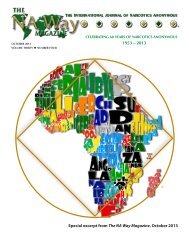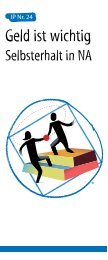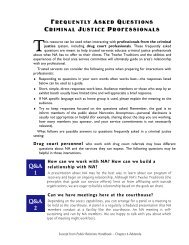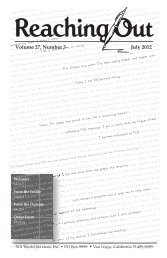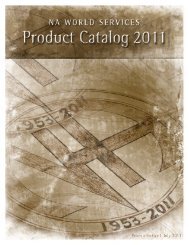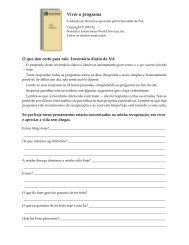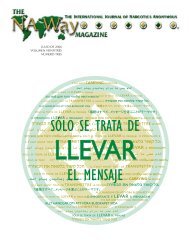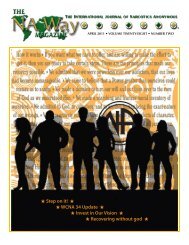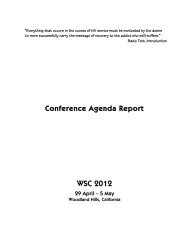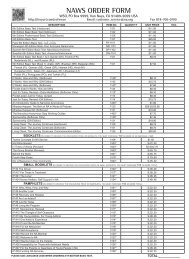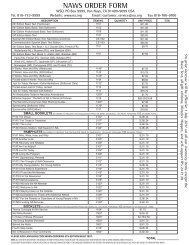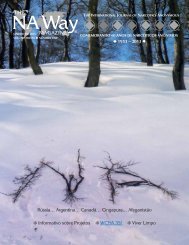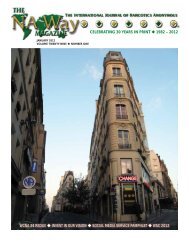Public Relations Handbook - Narcotics Anonymous
Public Relations Handbook - Narcotics Anonymous
Public Relations Handbook - Narcotics Anonymous
You also want an ePaper? Increase the reach of your titles
YUMPU automatically turns print PDFs into web optimized ePapers that Google loves.
We encourage each member of the group to contribute thoughts andideas. Our attitude of open-mindedness helps us remember that eachgroup is part of a greater whole. Acknowledging that we are a part ofsomething bigger than ourselves prompts us to look at still more newideas. Our diversity can enrich us only when we are open to itsrichness.It Works: How and WhyNA groups and areasP u t t i n g y o u r p l a n i n t o a c t i o nThere are many ways to help equip groups and areas with the resources theyneed to provide services. The following are some approaches that may be usefulwhen providing fellowship development services: Regular communication—through mail, email, and phone calls—is often theonly way to provide consistent service to some remote groups and areas. It isimportant to maintain ongoing communication—a committee may want to createa tracking log to make sure that contact is consistent. Friendships can be aneffective way to reach out to a group or area, and they can be rewarding for themembers. When possible, members, under the guidance of a service body, can visit groupsand areas that may not be able or willing to attend a neighboring area’s servicecommittee meeting. Members can also support recovery and service meetings byattending them on a regular basis. These visits seem to work best when a groupof addicts, rather than one individual, reaches out. Visiting groups or servicemeetings on a regularly scheduled basis,“Members can alsosupport recovery andservice meetings byattending them on aregular basis.”even if it’s only every two months, is morelikely to make a lasting impact. It is theconsistent contact with other groups thatis so helpful to groups and areas in need. Workshops and learning days areuseful tools for strengthening groups andareas. (For information about how toconduct a newcomer workshop, see Chapter Six, “Criminal Justice”.) Theseevents can help members find solutions and discover new ideas, and can provide astructured way to ask questions. Focusing on a specific aspect of service (such astranslation questions) or specific needs (such as getting more trusted servantsinvolved) seems to be the most useful approach for developing areas. Usingbrainstorming methods at these events can help the area or group find its ownsolutions. Including social gatherings, meals, and recovery meetings at these eventscan make service more attractive and create a sense of unity. Some areas andregions have created mobile or traveling workshops that are accountable to aservice body. In planning for workshops, trusted servants can work with memberswho have asked for support to choose topics that best meet their needs. A committee can provide orientations for group service representatives. Theseorientations can be informal gatherings before an area service committee meetingor they can be more formal efforts, such as creating tailored training materials andproviding presentations.110 | Chapter 12 | Fellowship Development



